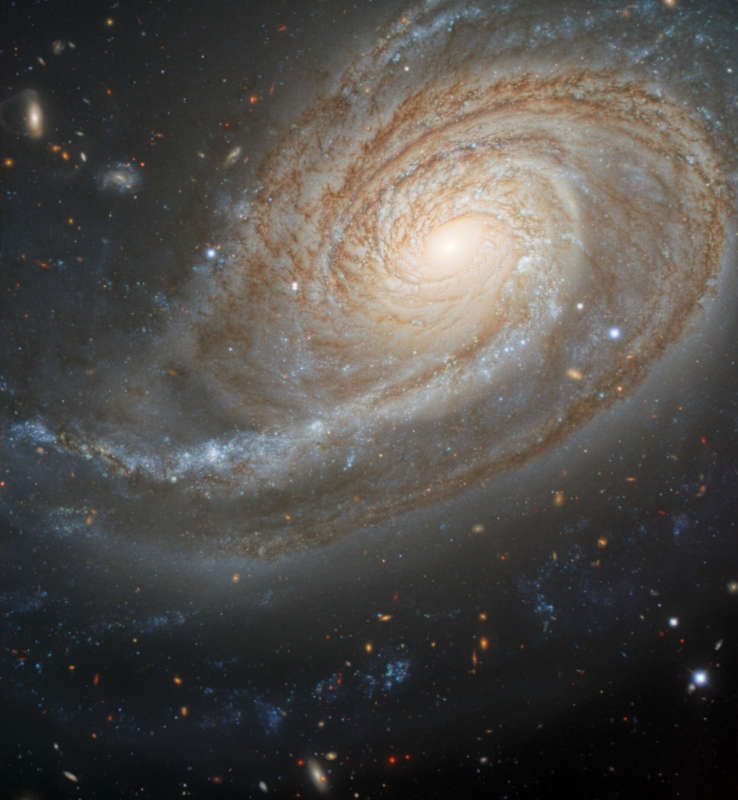
|
Credit & Copyright: International Gemini Observatory /
NOIRLab /
NSF /
AURA
Processing: T.A. Rector (Univ. Alaska Anchorage), J. Miller (Gemini Observatory/NOIRLab), M. Zamani & D. de Martin
Explanation:
Peculiar
spiral galaxy Arp 78 is found within the boundaries of the head strong
constellation Aries.
Some 100 million light-years
beyond the
stars and nebulae of our Milky Way galaxy,
the island universe is over 100,000 light-years across.
Also known as NGC 772, it sports a prominent, outer spiral arm in
this detailed cosmic portrait
from the large
Gemini North telescope near the
summit of Maunakea, Hawaii, planet Earth.
Tracking along sweeping dust lanes and
lined with young blue star
clusters, Arp 78's spiral arm is likely pumped-up by galactic-scale
gravitational tidal interactions
The close companion galaxy responsible is NGC 770, located off the
upper right of this frame.
But more distant background galaxies are clearly visible in the
cosmic
field of view.
Processing: T.A. Rector (Univ. Alaska Anchorage), J. Miller (Gemini Observatory/NOIRLab), M. Zamani & D. de Martin
|
January February March April May June July August September October November December |
| ||||||||||||||||||||||||||||||||||||||||||||||||
NASA Web Site Statements, Warnings, and Disclaimers
NASA Official: Jay Norris. Specific rights apply.
A service of: LHEA at NASA / GSFC
& Michigan Tech. U.
Based on Astronomy Picture
Of the Day
Publications with keywords: interacting galaxies
Publications with words: interacting galaxies
See also:
- Galaxies in the River
- APOD: 2025 August 19 Á Giant Galaxies in Pavo
- APOD: 2025 June 1 Á UGC 1810: Wildly Interacting Galaxy from Hubble
- APOD: 2025 March 12 Á NGC 772: The Fiddlehead Galaxy
- Peculiar Galaxies of Arp 273
- APOD: 2025 January 6 Á Colliding Spiral Galaxies from Webb and Hubble
- Shell Galaxies in Pisces
